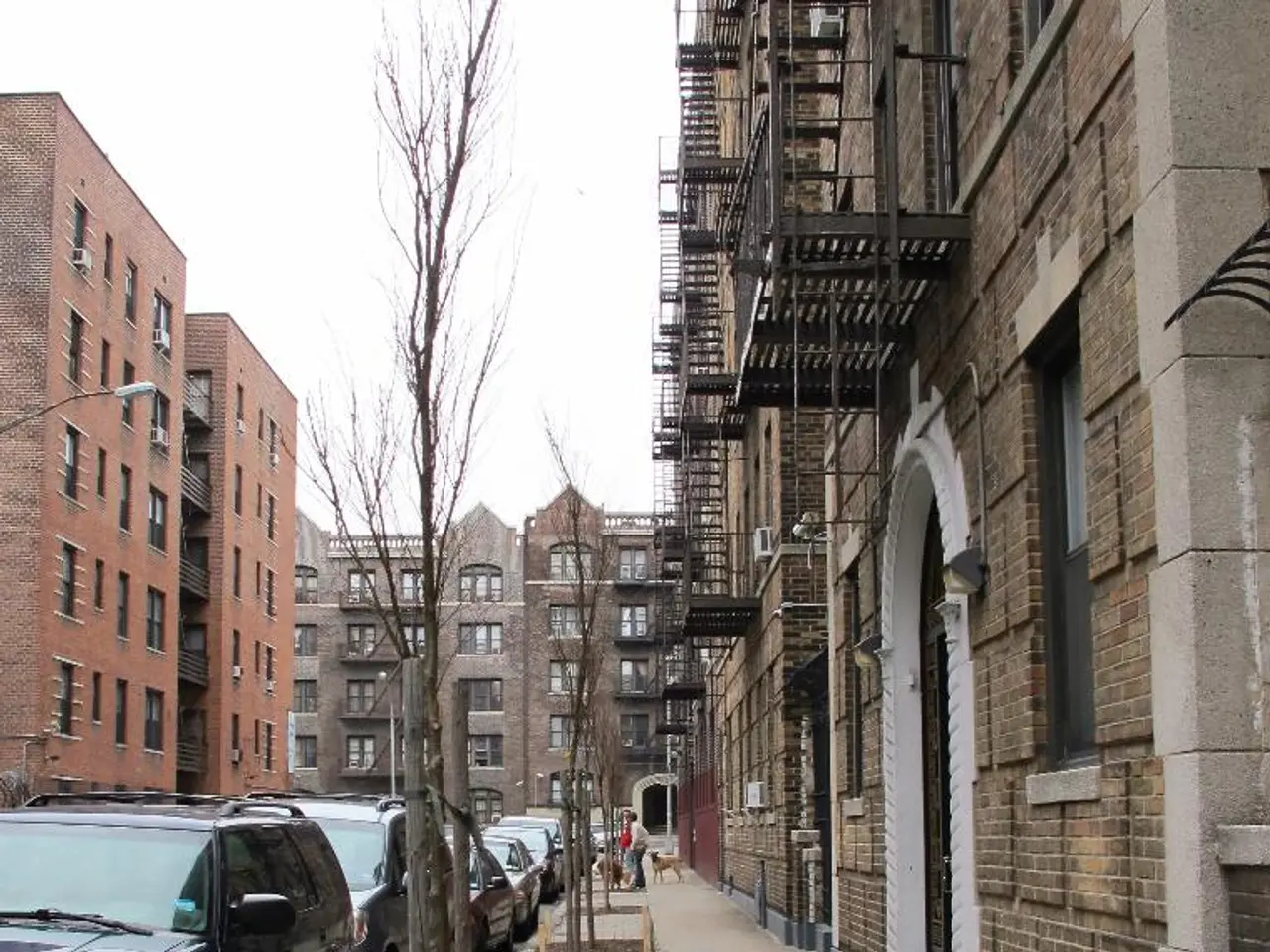Wood leasing in Weißenfels has hit a new height: peak wood production reached
In the heart of Weißenfels, Germany, a troubling issue has been unfolding in the Neustadt quarter. A once vibrant and thriving community is now marred by neglect, as buildings stand abandoned and deteriorating.
The buildings, which were jointly owned by the communal housing administration Weißenfels (WVW) and the Weißenfels/Saale housing cooperative (WBG) until two years ago, were sold to Lekova 12 GmbH, now Accentro Dessau Wohnen GmbH. This sale, part of a trend towards privatization, has been a contentious issue in the city.
Accentro Dessau Wohnen GmbH, a real estate company known for its apartment privatization efforts, has been criticized for cost-cutting on maintenance and repairs, contributing to the property neglect in Weißenfels. This profit-driven approach can lead to a variety of issues, including the apparent inaction of both the property owner and city authorities.
City authorities may face challenges in enforcing housing and property maintenance laws, especially if regulatory frameworks are weak, underfunded, or if there is bureaucratic inertia. Legal and administrative gaps can also hinder effective action, as there might be limitations on what authorities can do regarding private property management.
Economic and social pressures also play a role. Weißenfels, like many smaller towns, may struggle with limited municipal budgets and a need to encourage investment and housing availability. This can create a reluctance to confront property owners aggressively or impose strict penalties that might deter future investments.
Community and public awareness are crucial factors as well. If residents and community groups are not sufficiently organized or informed, there may be less pressure on the owner and authorities to act, allowing neglect to persist.
The Neustadt quarter has seen a significant increase in the population of non-German origin, as observed by INSEK in 2021. This demographic shift, coupled with societal prejudices and vacancy rates increasing, has further contributed to the deterioration of the area's reputation.
The abandoned hallways of the buildings in the Neustadt quarter also appear neglected. Mountains of garbage, electronic waste, and old furniture surround the buildings. The last tenants are said to have left their apartments in late July, leaving behind a stark reminder of the neglect.
The Weißenfels Stadtwerke Energienetze GmbH turned off the electricity and hot water due to a possible "danger to life and limb" from manipulated installations. Despite this, neither the owner, the top privatizer Accentro, nor the city intervened.
Local official Stehr believes that the pollution problems in the Neustadt quarter are partly due to the tenants, inactive landlords, and the city. The company Tönnies, which had plans to rent more apartments in the Accentro buildings, faced criticism during the COVID-19 pandemic due to the living and working conditions of its employees.
As the Hufeisensiedlung, a symbol of equal housing, turns 100, the neglect in the Neustadt quarter serves as a stark contrast, highlighting the complex issues surrounding property privatization and maintenance in Weißenfels. It is a reminder of the need for greater oversight, community engagement, and responsible property management to ensure the well-being of all residents.
- The sale of buildings in Weißenfels's Neustadt quarter to Accentro Dessau Wohnen GmbH, a company known for financial interest in real-estate investing, has raised concerns about the future of property maintenance in this community.
- As the economic pressures on the city of Weißenfels push for investment and housing availability, the neglect in the Neustadt quarter represents a broader issue in politics and general-news, where resources are allocated to meet the needs of a growing population, while maintaining oversight in privatized real-estate sectors.
- As indulgence in profit-driven investing strategies by real-estate companies like Accentro Dessau Wohnen GmbH lead to neglected properties in the Neustadt quarter, the need for public awareness and active engagement by community groups becomes paramount to influence responsible property management, ensuring a safe and habitable environment for all residents.




